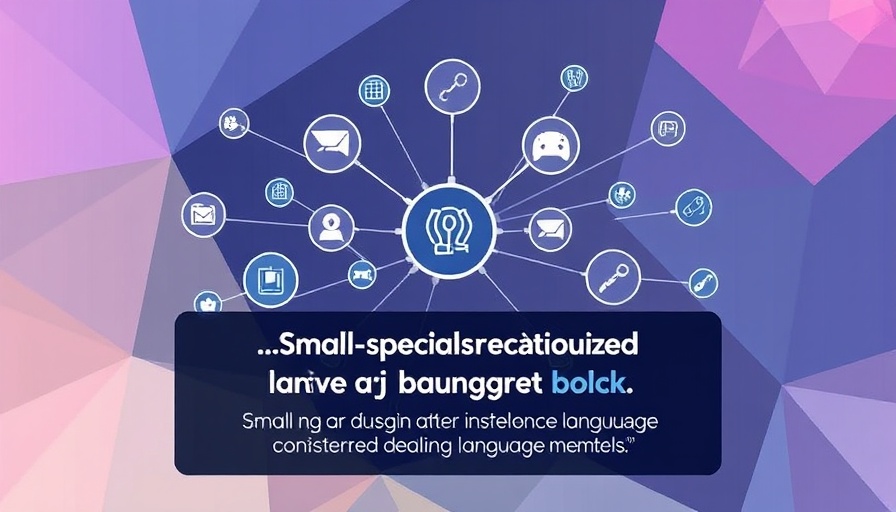
Unlocking the Power of Niche Language Models
In an era where giants like OpenAI and Google dominate the AI landscape, smaller, specialized language models are proving they can deliver exceptional results without the extensive resources typically required. These models, often tailored for specific tasks or industries, are redefining how we approach artificial intelligence in business communications and marketing strategies.
Why Small Models are Outperforming the Giants
The primary advantage of specialized models lies in their ability to hyper-focus on distinct vocabularies and contexts. For instance, a language model designed for legal documentation can outperform a general model in accuracy for legal terms and jargon. There’s a growing recognition that success in AI does not solely lie in size, but rather in how well these models understand and process context. This feature enhances their ability to communicate effectively and efficiently as they produce relevant insights in the specific field they are trained for.
Real-World Applications: Success Stories
Several companies are already reaping the rewards of deploying smaller models. For example, a fintech startup utilized a specialized AI model to analyze market trends and provide targeted financial advice more accurately than any generalist model. This not only resulted in higher customer satisfaction but also significantly improved the company’s bottom line. Businesses that adopt these smaller models can develop stronger customer relationships by personalizing marketing content and enhancing user engagement.
AI in Marketing: A Game Changer
As businesses embrace digital marketing, the role of AI becomes even more crucial. Smaller, specialized models provide critical insights that enable companies to tailor their marketing strategies effectively. For instance, a retail brand can leverage an AI model designed for consumer behavior analytics to predict purchasing trends. This targeted approach reduces marketing waste and maximizes ROI, making every dollar spent more impactful.
Ethical Considerations and the Path Forward
While specialized language models herald promising advancements, ethical considerations remain paramount. The potential for bias within datasets used to train these models can have far-reaching implications. Companies must ensure they address these biases to prevent perpetuating stereotypes or misinformation. Furthermore, there’s a responsibility to remain transparent about the limitations and capabilities of AI technologies as they integrate into business practices.
As we look towards the future, the blending of ethics with technological advancement in AI will define the next era of innovations. The success of smaller models will likely encourage a shift away from the belief that bigger is always better in AI development.
Conclusion: Embracing Change in AI
In summary, small, specialized language models bring a wealth of advantages, enabling businesses to harness AI technology efficiently. The ability to focus on niche applications not only allows for greater accuracy but also strengthens customer relationships with personalized engagement strategies. As industry leaders, it’s imperative to embrace these advancements while remaining vigilant about the ethical dimensions of AI deployment.
 Add Row
Add Row  Add
Add 




 Add Row
Add Row  Add
Add 

Write A Comment